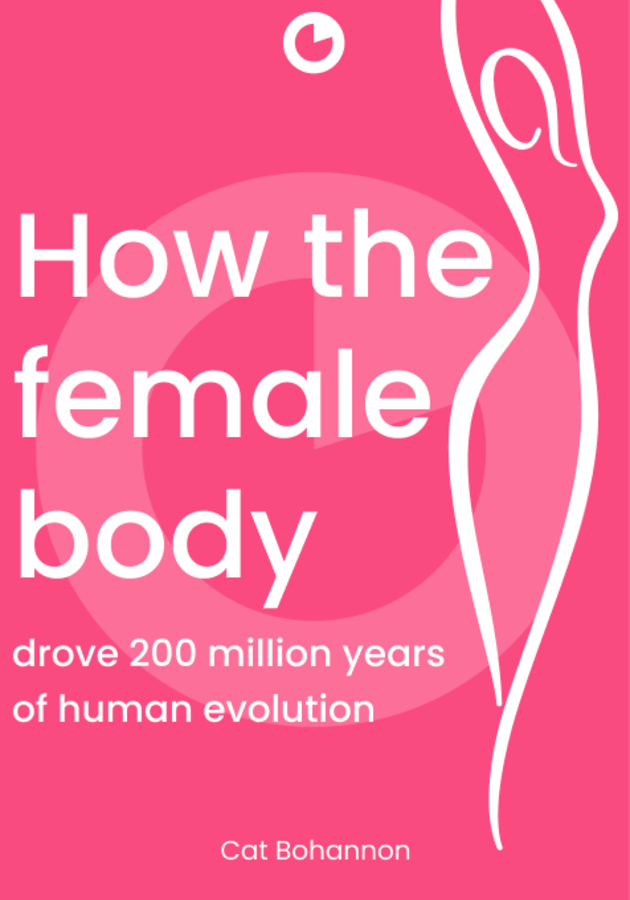“The times they are a-changin,” sang the great Bob Dylan in 1964. Well, since then, the times have changed quite a bit – and the world of work is no exception! In an age of constant connection and an ever-expanding menu of options, not only have the boundaries between “work” and “not work” been blurred, but also the non-linear – or non-traditional career path – career path has become the norm. Nowadays, we have options our parents never dreamed of; the caveat is that we also have to deal with issues they never had to deal with.
That’s where “The New Rules of Work” comes in. Nicely written and smartly structured by Kathryn Minshew and Alexandra Cavoulacos – founders of the popular career website The Muse – this book has been justly advertised as “the definitive guide to the modern workplace.” So, get ready for a quick introduction to the new world of work and prepare to discover a few tools for finding the right path and landing the perfect job!
What do you actually want?
“In the new world of work,” write Minshew and Cavoulacos in the introduction to their book, “what many of us need is not a tool for job search, but tools for job discovery.” In other words, much more than Indeed or LinkedIn, we need tools that will help us understand our professional strengths and skills and tools to figure out what we, as unique individuals, really want out of life. That’s precisely what Minshew and Cavoulacos’ Three R’s aim to help you with. The Three R’s – reflect, research and refine – frame a series of steps that should effortlessly guide you through the all-important preparatory stage of your career. Let’s examine them, one by one:
- Reflect. Until justl two or three decades ago, one’s career was pretty much determined by one’s degree. Put otherwise, when one chose to be an economics major in college, they also chose both a job and a career in finance. Fortunately, thanks to the advent of the internet, education has stopped being “a ball and chain,” and has become “a platform to spring forward from.” There are many free online resources – websites, courses, stories, etc. – that can help you augment your education, and extend your real strengths, talents, interests and values at any stage of your growth and development. The path isn’t preordained anymore: you are in charge of it now. You can skip between jobs whenever you want to, and you can reimagine yourself along the way. Start reflecting on who you are today. Ask yourself the following two questions: “What do you value?” and “What’s your current frame of mind?” If you want to figure out what you want in a job or in life, try to be brutally honest when answering them.
- Research. In the past, there were only a few methods for getting career information or advice. Nowadays, all you need is “a web browser and a bit of curiosity” to reach anyone and learn almost anything about, well, anything. That’s great, but it’s also daunting. The more choices we have, the more incapable we become of reaching a decision. To keep your research organized, use the Muse Method. First, choose seven industries where you want to work (e.g., healthcare, tech), and then put them into a grid, cross-examining against your values and expectations (e.g., flexibility, compensation, creativity). Finally, dive into Google to identify the top companies in each of the industries and discover what they offer and how satisfying their offers are. This will help you narrow down your list to three industries and several companies. That means it’s time for refinement.
- Refine. Refining your research essentially means assessing it against your passions and motivations. You can start by identifying your dream jobs and dream companies just so you can have a proper measure stick. Next, you can test drive your possible career paths by trying a relevant internship or a related freelance gig, by taking a free online class, or even by volunteering in your free time. That should help you get a better idea of what you really want out of your job and life. When you learn that, it’s all about conquering the fear to go outside your comfort zone. To achieve this, try to identify your strengths and weaknesses, and – more importantly – try to put in place your worst enemy: your inner critic. If you can’t do it by yourself, it’s worth talking to a mental health professional, or even a coach.
As you can see, as far as Minshew and Cavoulacos are concerned, the process of finding a job in the modern world should be both as rigorous and as experimental as the scientific method. “You first need to have a hypothesis about what you want to do with your career,” they explain, “and then you take steps to prove or disprove whether you’re headed in the right direction – that is, the right direction for you. In other words, you don’t have to ‘have it all figured out’ to make the next move, but you do need a solid footing.”
The nuts and bolts of getting a job
Making a move before knowing what your dream job or career could look like is not that dissimilar from starting your car without at least a vague idea about your destination. Sure, the ride might be fun, but you’re less likely to reach a rewarding end point than to run out of gas in the middle of nowhere! On the other hand, once you’ve identified your dream job, you can safely move to the nuts and bolts of getting it under the New Rules of Work. These are the basics:
- Building your brand. In the past, branding was for products only; today it’s for people as well. In fact, that’s why we have so many Instagram and YouTube influencers. Employers today want employees who are not only talented, but who also know how to present themselves as such. To develop your personal brand, determine your brand attributes first. Then, draft a branding statement that captures them and update all of your profiles to reflect them – and only them. You’ll also need a personal website – there’s no better vehicle to display your new persona and your new unique voice.
- Networking. Networking has always been considered one of the most important pillars of a successful career but, due to social media, it has never been more “nuanced, common, and expected” than today. Real networking, however, shouldn’t be a business transaction when you need something; it should be all about building ongoing and mutually beneficial relationships with people you care about. In fact, networking is never merely about making new connections, but also about investing in the connections you already have.
- Finding job opportunities. Job boards and classified sections of newspapers are long a thing of the past. Nowadays, there are many better ways to find the position that best suits you! The four best, according to Minshew and Cavoulacos, are the following: 1) keeping close tabs on your dream companies; 2) Asking your network for introductions and referrals; 3) Doing a job search online; and 4) Using social networks to identify openings.
- Crafting your application. Some things never change. Even though under the New Rules of Work, we apply for jobs online rather than in person, CVs, resumes and cover letters still matter. In fact, one can argue that they matter more than ever, because nowadays – and for a good part of the application process – most of us are nothing more than “faceless data points.” To stand out, you not only need an informative resume, but also a well-structured and nicely designed one. Show as much as you can; tell only the necessary. Make sure to include quantifiable achievements. And use action words!
- Acing the interview. There are many more ways to conduct an interview today than there were a few decades ago. All of them demand different types of preparation, but most can be “aced” if you approach them with a good understanding of the company, your potential role, your relevant background and the people you’ll be meeting with. Prepare for the inevitable questions, such as “Tell me a little about yourself,” “Why do you want this job?,” “What are your strengths and weaknesses?” and “Where do you see yourself in five years?”
- Nailing your negotiation. In today’s marketplace, companies make their first offers with the expectation that prospective employees would negotiate their position. Hence, “Unless you haggle a little, you might end up with less than you’re worth.” Don’t forget that you can negotiate for benefits other than salary, including a flexible schedule, vacation time, moving expenses and more.
Charting your course through the modern workplace
Finding the job you like is merely the first step toward becoming the master of your career and, subsequently, your destiny. If you want to keep your job, under the New Rules of Work, you’ll have to excel at it. Meaning, you’ll have to be fully dedicated to your responsibilities and do the best work you can, regardless of what you do or on which step of the career ladder you currently stand. In addition to showcasing your talents and strengths, you’ll also need to demonstrate certain personal qualities and soft skills to be successful and progress. Here are a few tips and tricks to enhance your value in the workplace.
- Communication. In the past, there were only a few ways to communicate and that made communication clear and straightforward. Nowadays, thanks to social media, communication is far more casual and laid back, and riddled with fluff and fillers. If you want to stand out, you need to learn how to communicate professionally. Say or write something only when it’s necessary. “Whether you’re writing an email or speaking in front of a group of people, you need to have a clear-cut purpose,” write Minshew and Cavoulacos. Be respectful toward your audience and personalize your message with respect to their expectations. Listen as much as you speak. Also, especially during meetings and public presentations, be wary of nonverbal cues: they sometimes say more than words.
- Interpersonal skills. In today’s dynamic world of work, interpersonal skills have become almost as important as strengths and talents. No wonder they are sometimes called “employability skills” as well. Unless you’re exceptional at what you do – and even then – your employer will value you more as a team player and collaborator than as a lone wolf. So, mind your competitiveness and find ways to connect to your colleagues and superiors. Identify the influencers and connectors and stay near them – until you become one of them some day. The same goes for mentoring as well: if you can, be a mentee of the best until you can become a mentor of the best. Most importantly, try to handle conflicts and confrontations like a pro by owning up to your own mistakes and forgiving other people’s.
- Productivity. In the past, work lives were compressed into nine-to-five schedules, spanning from Monday to Friday. Thanks to technology, however, nowadays it feels like we are supposed to be working constantly, since we are “connected, available, and reachable” all the time. There’s a difference, though, between being busy and overworked on the one side, and being productive and efficient on the other. To achieve the latter, try the authors’ 1-3-5 method. In their words, “On any given day, assume that you can only accomplish one big thing, three medium things, and five small things, and narrow down your to-do list to those nine items.” Contrary to popular opinion, productivity is never about doing more in less time; it’s about prioritizing, that is to say, about doing the right things in the right order.
- Career advancement. In the past, career advancement lay almost solely in the hands of employers and meant pretty much predefined promotions after a set number of years. Nowadays, however, few employees are looking for long-term relationships with one company. Consequently, promotions usually happen between companies and they take far less time than they used to. To speed up the process, invest constantly in your own education. Learn new skills, go to relevant conferences, and even join a professional organization that helps its members advance and succeed in their careers. If your company offers professional development resources, don’t be shy to use them. Today, knowledge is indeed power. The more you know, the more chances you’ll get.
Final notes
“The New Rules of Work,” as correctly described by its authors, is both an extension of the philosophy of their online career platform, the Muse, and a practical playbook for navigating the new world of work. To paraphrase bestselling author Adam Grant, just like TheMuse.com has become the online go-to resource for career advice, this “user-friendly guide” should become its equivalent in a book format. A must-read for anyone who feels a little lost on their career path.
12min tip
It has never been easier to follow your dreams than today. So, don’t get stuck in a career you don’t want. Use the numerous tools and resources freely available to everybody to find your own, unique path. You only live once.





























